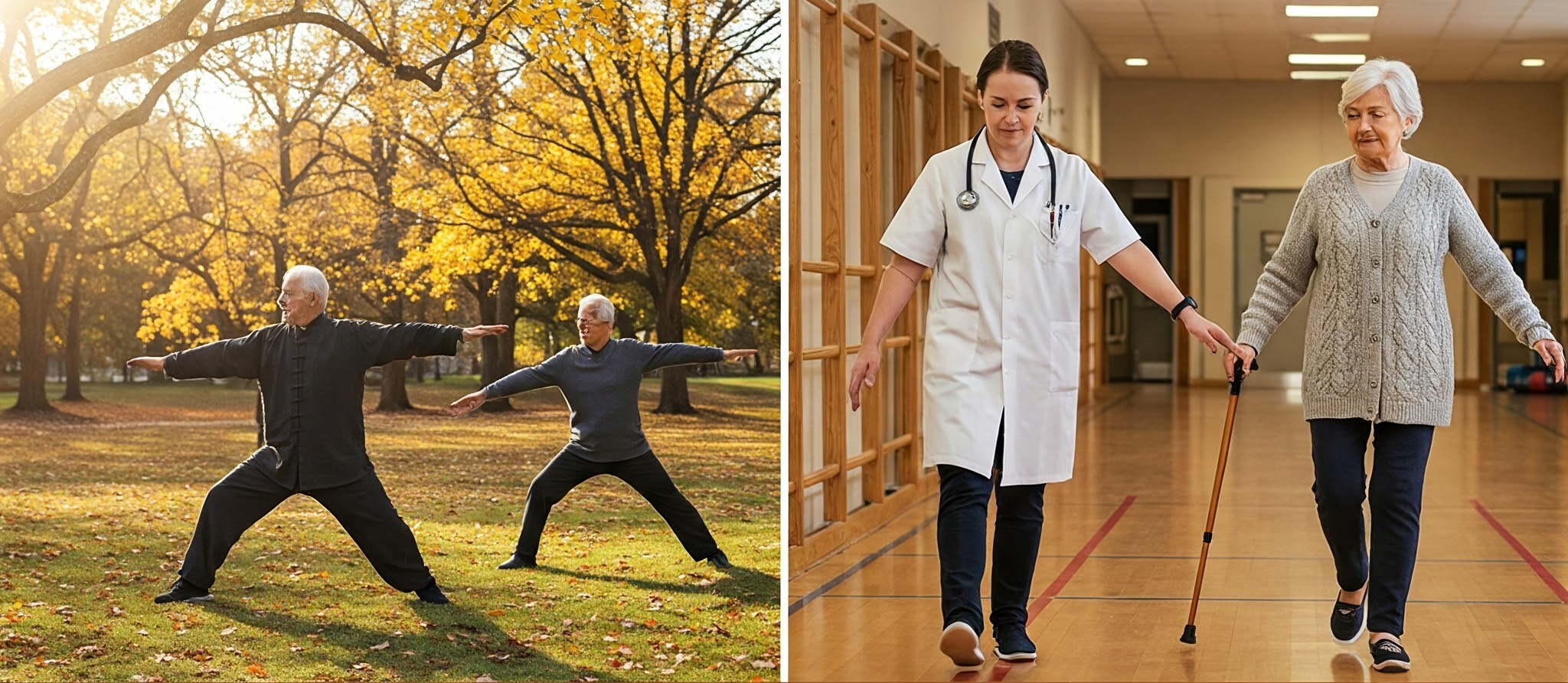
Fall Prevention Strategies for Older Adults
Discover practical tips and exercises to improve balance and reduce the risk of falls for seniors living independently.
Understanding Fall Risks in Seniors
As we age, physical and sensory changes can increase the likelihood of falls. Key contributors include:
- Decreased muscle strength and flexibility
- Balance or gait issues
- Vision and hearing impairments
- Chronic health conditions like arthritis or diabetes
- Medications that cause dizziness or drowsiness
- Hazards in the home environment
Effective Fall Prevention Strategies
1. Balance and Strength Training
Engage in exercises like Tai Chi, yoga, or strength training to improve stability and mobility. Even daily walking can significantly enhance coordination and confidence.
2. Home Safety Modifications
Reduce tripping hazards by removing clutter, securing loose rugs, adding grab bars in the bathroom, and ensuring adequate lighting throughout the home.
3. Vision and Hearing Checks
Regular eye and hearing exams help detect changes that may affect spatial awareness or response to surroundings — both critical to preventing falls.
4. Medication Management
Review medications with a healthcare provider to identify those that may affect balance, alertness, or blood pressure, and explore safer alternatives if needed.
5. Supportive Footwear
Choose well-fitting, non-slip shoes with good arch support. Avoid walking barefoot or in socks on smooth surfaces.
6. Assistive Devices and Mobility Aids
Canes, walkers, and handrails offer valuable support for those with mobility challenges. Ensure these are fitted and used correctly under professional guidance.
When to Consult a Geriatric Specialist
Consider a consultation if you or a loved one:
- Has experienced one or more recent falls
- Feels unsteady or anxious while walking
- Struggles with daily tasks that require balance
- Wants a personalized fall risk assessment or prevention plan
Empowering Seniors to Stay Independent
Fall prevention isn’t just about avoiding injuries — it’s about empowering older adults to live actively and independently with confidence. Through thoughtful planning, supportive environments, and guided physical activity, seniors can continue doing the things they love while staying safe.
At Recauva, our geriatric care team specializes in personalized fall risk assessments, balance training, and mobility support for older adults. We're dedicated to helping seniors live securely and vibrantly, every step of the way.
